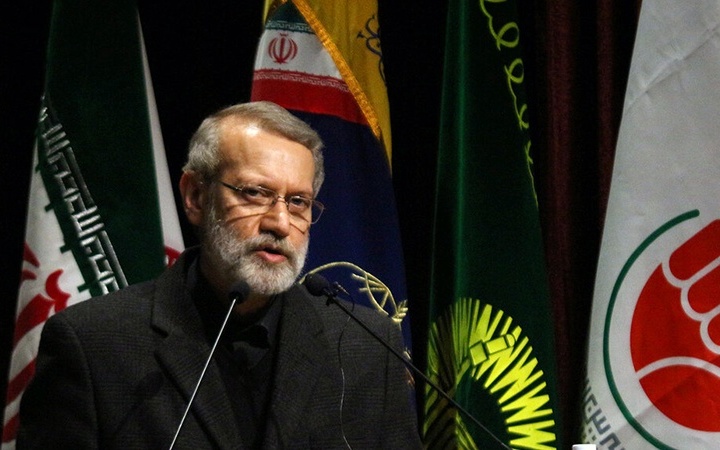Amid long-standing internal problems and US sanctions, Iran’s officials have put out contradictory signals over the troubled economy.
Parliament Speaker Ali Larijani (pictured) told an audience in northern Iran on Monday that the economic challenges arise from the “enemy” effort to destroy the Islamic Republic: “The enemy is seeking to get investors disappointed by creating obstacles and making baseless claims.”
Iran is suffering from difficulties with investment, production, employment, and the environment as well as the comprehensive American sanctions, imposed last November after the Trump Administration’s withdrawal from the 2015 nuclear agreement.
Iran’s official oil exports have fallen at least 80% and up to 95% since April 2018. Analysts now say that a global oil price of $195 per barrel for the Government to have a balanced budget.
The Supreme Leader, who has proclaimed a “Resistance Economy” of self-sufficiency, has led Iran’s officials in declaring an enemy “economic war” against Tehran.
Larijani said the “enemy” intends to “paralyze” production, but he acknowledged that the “big size of the government” is a “major obstacle” for investment. The remarks pointed to the Goverment’s approach of encouraging private investment; however, the privatization of State enterprises during the Ahmadinejad Government, from 2005 to 2013, did not proceed smoothly and led to claims of widespread corruption.
President Hassan Rouhani has criticized the extent of the Republican Guards’ stake and even control in the Iranian economy, with the military organization buying up substantial shares of privatized State enterprises. In 2017, he described the Guards as “a government armed with a gun” with whom no one dares to compete.
“Sanctions to Stop Impacting”
But in contrast to Larijani’s warning, Iranian State media is headlining, “US Sanctions to Stop Impacting Iran’s Economy Next Year”.
Press TV cites an International Monetary Fund official who projected that the Iranian economy will stop contracting in 2020.
Jihad Azour, director of the IMF’s Middle East and Central Asia Department, said on Monday that the US restrictions will not have any additional effect, “The estimate is that…sanctions that were reintroduced last year and tightened this year, next year will not have an additional impact.”
The IMF is forecasting that the Iranian economy will shrink by 9.5% this year. The Fund is estimating a stagnant position of 0% growth in 2020.
The World Bank projects a fall of 8.7% this year.
See Iran Daily, Oct 16: Economy to Shrink Almost 10% This Year — IMF

